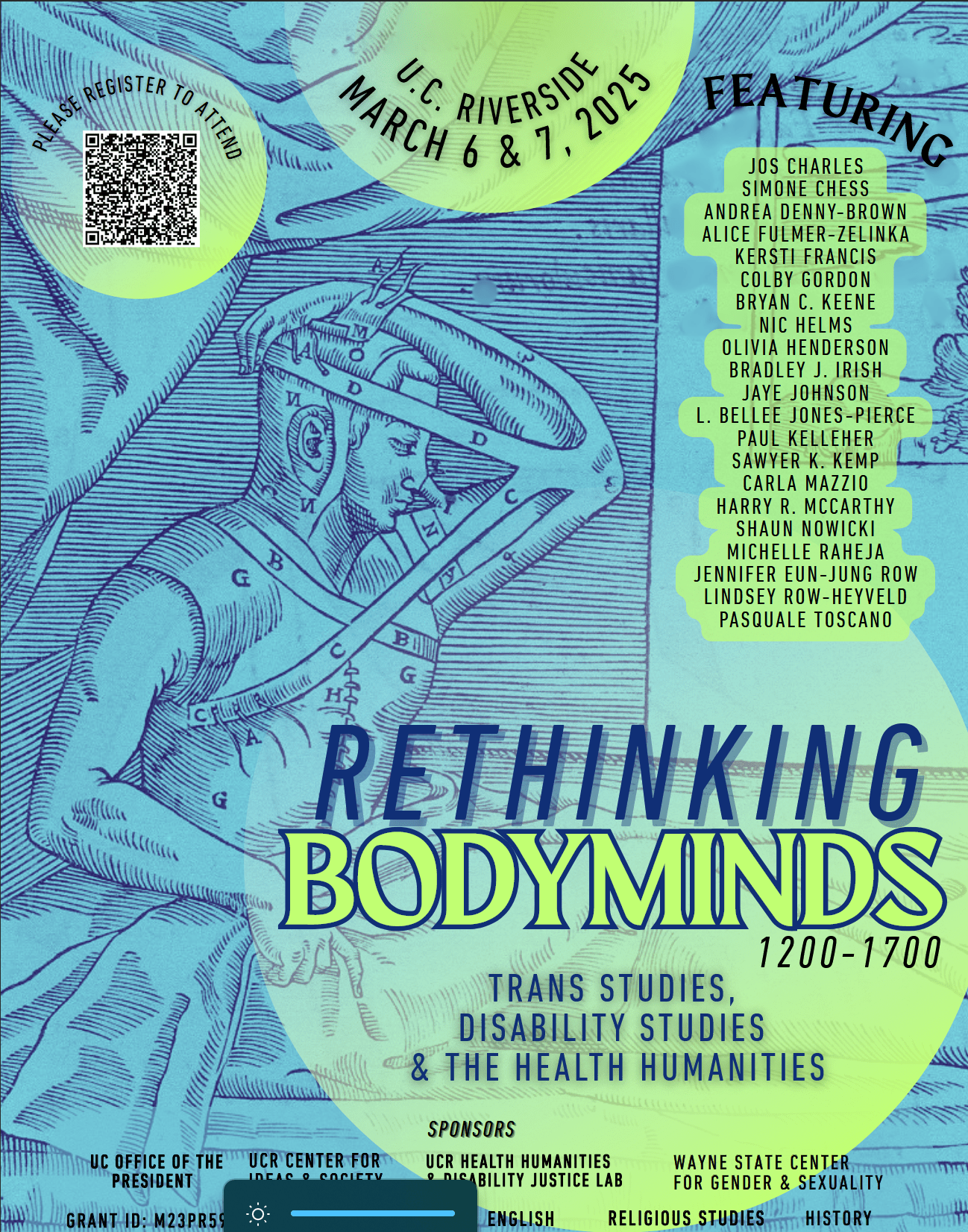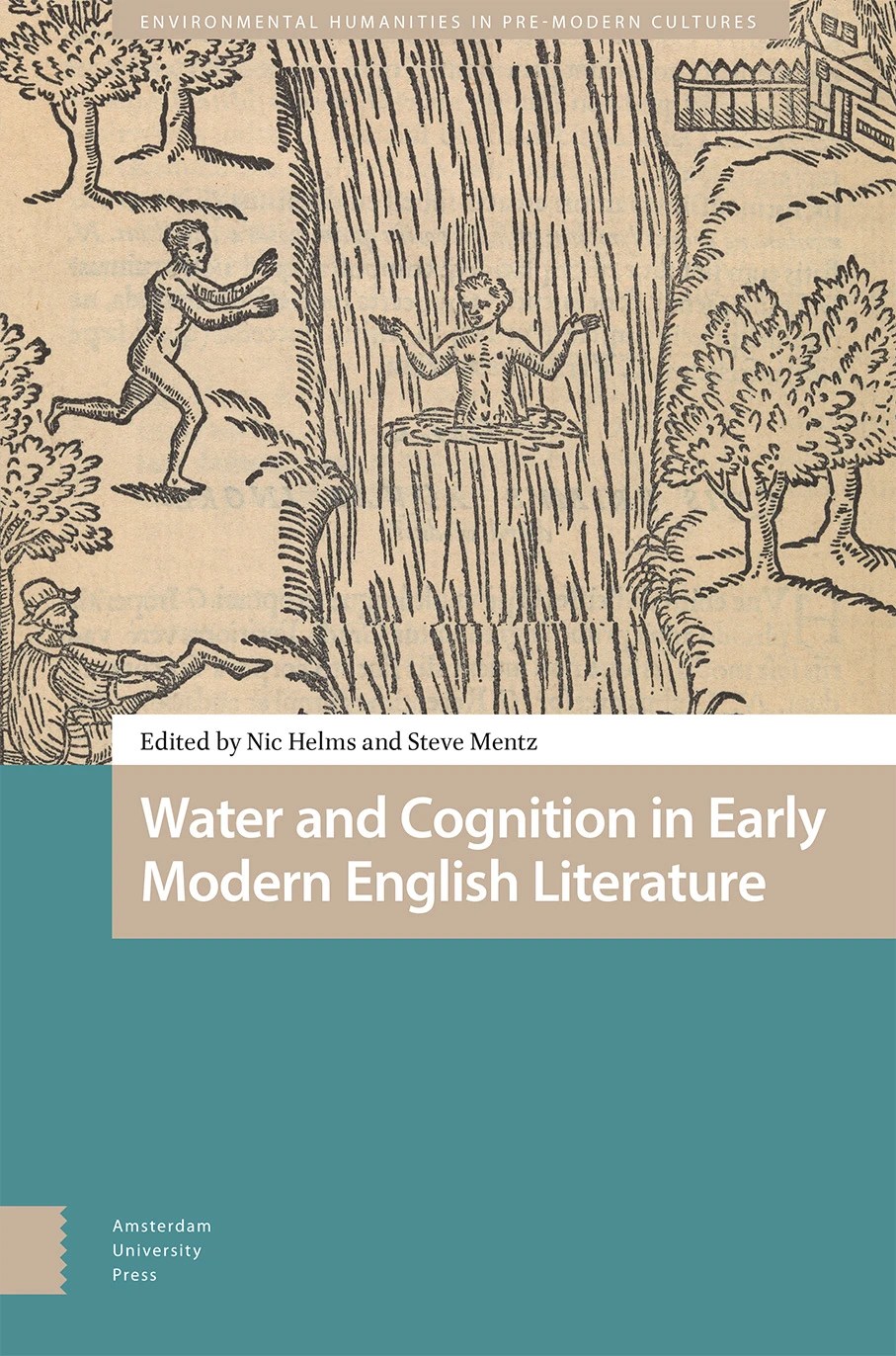I’ve barely gotten home from the 2026 Renaissance Society of America conference in San Francisco, and I’m already on to the next thing! Writing about “The Neurotrans Method of Andreas Vesalius” for the “Rethinking bodyminds 1200-1700” conference at UC Riverside. I’m especially excited to see Olivia Henderson, Bradley Irish, Bellee Jones-Pierce, and Lindsey Row-Heyvald, whoContinue reading “Rethinking Bodyminds 1200-1700”
Water and Cognition in Early Modern English Literature
Water and Cognition in Early Modern English Literature, which I co-edited with Steve Mentz, is now out in print from Amsterdam University Press! Water and cognition seem unrelated things, the one a physical environment and the other an intellectual process. The essays in this book show how bringing these two modes together revitalizes our understandingContinue reading “Water and Cognition in Early Modern English Literature”
The Construction of Gender in Middleton and Deckers The Roaring Girl
Gender can be understood not as a fixed or innate quality, but as a collective social performance driven by the desire to exist within a common social identity. This desire represents itself not only as a central influence on an individual’s actions but also as a punishment or threat of punishment inflicted on social peers.Continue reading “The Construction of Gender in Middleton and Deckers The Roaring Girl “
Seeking the Unknown
Who doesn’t love a good mix of literature and music? This question guided me in deciding what to do for our second project of Rethinking Medieval and Renaissance Literature. I went back and forth between a few ideas before landing on a spotify playlist based on my blackout poem I made from Margaret Cavendish’s “ItContinue reading “Seeking the Unknown”
Comparing Apples and Oranges: A Comparative Analysis of “A Clockwork Orange” and “Paradise Lost”
While Anthony Burgess’ provocative novel A Clockwork Orange has been loosely associated with Milton’s Paradise Lost in very few academic works, the utilization of each text as a tool to better understand the other remains largely unexplored (Evans 130; Pearson 41) At first glance Burgess’ blood-hungry, sexually gluttonous dystopia may appear as the furthest depiction of human nature from Milton’s how-to guide on salvation possible. However, both texts are established on, and consistently advocate for, personal autonomy and freewill. Furthermore, both texts prompt readers to acknowledge the detrimental effects resulting from the loss of these liberties.Continue reading “Comparing Apples and Oranges: A Comparative Analysis of “A Clockwork Orange” and “Paradise Lost””
Medieval Second project
Opening the Door to Different Discussions in Renaissance Literature. Classes like Medieval and renaissance literature are important for English and literary majors but as great as it is to learn about that time period, most popular works like Shakespeare should also involve a second to the unpopular works. In class we discussed a lot ofContinue reading “Medieval Second project”
Does This Cross Stitch Look Realistic?
For my unessay, I chose a quote from Middleton and Decker’s The Roaring Girl. The quote “ I have no humor to marry, I love to lie a’ both sides a’ th’ bed myself; and again a’ th’ other side, a wife you know ought to be obedient, but I fear me I am tooContinue reading “Does This Cross Stitch Look Realistic?”
Paradise Lost: The Graphic Novel
For this project I chose to adapt the beginning of Paradise Lost into a graphic Novel. I actually had a lot of fun with this and would love to continue with the entire book if I had the time to do so (which I do not). I was inspired by a graphic novel for theContinue reading “Paradise Lost: The Graphic Novel”
Yde et Olive but it’s One Piece
My Unessay project is a plot outline of what the story of Yde et Olive would look like in the world of Eiichiro Oda’s One Piece. [Warning: Click hyperlinks at your own risk! They will likely contain huge spoilers!] Without further ado… Aragon is an island kingdom located in the Paradise part of the GrandContinue reading “Yde et Olive but it’s One Piece”
A Playlist for the Players: “Boy My Greatness” Characters Through Music
by Emi Harmon For this project, I wanted to create a playlist for a few of the characters in the unreleased play by Zoe Senese-Grossberg, “Boy My Greatness.” I felt that using one performance art (music) to look at another (theatre) would be relevant, especially since the play was written recently, as were a goodContinue reading “A Playlist for the Players: “Boy My Greatness” Characters Through Music”
I’m Scared There Are Other Worlds inside of My World
I walked by a stretch of grass and saw a shriveled figure among the stems. I called out to it. “What has happened to you?” The mishapen body cried back, “There are other worlds inside of my world.” I approached the creature. I took its hand up in my grasp. “There is only this world,”Continue reading “I’m Scared There Are Other Worlds inside of My World”

